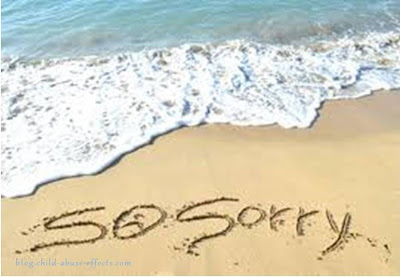Almost all survivors at some point want a confrontation with their abusers. They're looking mostly for acknowledgement, of some responsibility taken. And if they dare to believe it possible, an apology. I was no different.
But the reality is typically quite different than the dream of I'm sorry. I shouldn't have done it. I was wrong. You were not to blame. What can I do to make your pain go away. These are all dreams that stem from when we were children desperately coping with rejection, betrayal and abandonment.
Though not always the case, one of three things usually happens during confrontations with our abusers:
- Outright denial (That didn't happen)
- Minimizations (I hardly laid a hand on you)
- Pointing the finger of blame to the victim (You made me do it)
The confrontation I had with my abuser set me back in my healing. I got the triple whammy. My abuser blamed me for what she did, minimized what was done to me, and denied the worst of it. I thought I was stronger. That I could take whatever was dished out to me. But I couldn't. I had a breakdown that took me a very long time to recover from.
It's been both my personal and professional experience that confrontations come at the expense of re-victimization. They do not yield the expected result in the vast majority of cases. Therefore, I'm not an advocate of confrontations with our abusers. I don't believe they're necessary for healing. I believe the risk is too high.
"I'm willing to take that chance," was what one client told me.
This is my advice to those who are absolutely determined to have a one-on-one with their abusers:
- Make sure you're already walking a healing path. Confrontations are not a good idea if you're fragile or vulnerable.
- Know exactly what you expect to get from the confrontation. Are you looking for acknowledgement of what was done to you? An apology? Or something else?
- Ask for what you want, but be prepared to not get it.
- Be prepared to not be believed if you're disclosing to this person for the first time, such as in sexual abuse situations.
- Have a strong support system in place in case the one-on-one does not go as you had hoped.
Do you believe confrontations are necessary for healing?



No comments:
Post a Comment
Please be respectful. No profanity or hurtful remarks to others.